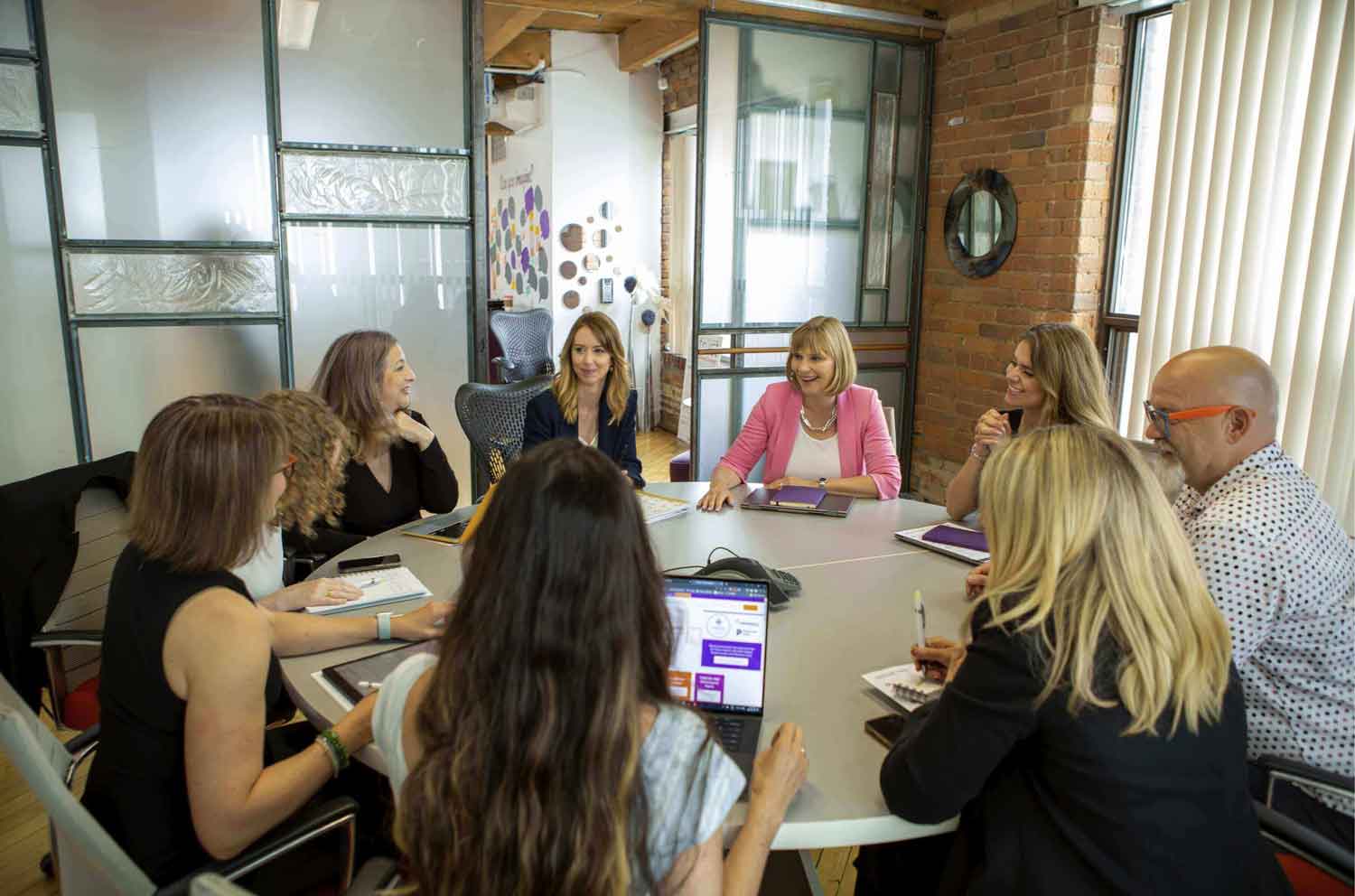Many of us associate learning with our student days. As adults, it often seems as though we have less time to learn new things. There are always higher priorities. Yet, for both organizations as well as leaders, there are a multitude of reasons to create an environment of continuous learning.
Why Continuous (and Collaborative) Learning?
There are many studies that establish a strong link between lifelong learning and health benefits such as reduced stress or depression. As we learn new skills and behaviours, it can boost self-confidence and self-esteem. And, when we learn together, it help build a sense of purpose, and foster connection with others. People engaged in learning report feeling better about themselves and a greater ability to cope with the ongoing overwhelm of today’s busy work life.
According to research by Bersin & Associates, organizations with a robust learning culture have:
- 37% more productive employees
- A 32% higher chance of being the first to market an innovative solution
- A 26% increase in their ability to deliver quality products
The Case for Collective Learning
First, we’re living in an age of complexity; leaders are often knee-deep in a sea of data, organizational objectives can shift without notice, and work can be really overwhelming. It’s hard to keep up. The reality is that leaders need to have deep subject matter expertise but they also need to know who else has the right expertise they need to get questions answered faster and problems solved more efficiently. That’s why you hear the word “collaboration” being bandied about so much these days.
It doesn’t have to be lonely at the top. When leaders can learn together – and from one another – it helps them make connections with peers from across the organization. Social learning opportunities reduce stress and increase engagement.
Developing people capabilities not only engages your people, but helps reduce stress levels by building needed skills, and fostering improved collaboration and communication. Learning also builds competencies, which improves self-confidence.
Make it Personal
By allowing your people to have a say in what’s skills or expertise they need to develop, you not only foster accountability, but also allow them to build the relevant skills and behaviours to help them the most – reducing stress in their role. A learning and development plan that has an element of personalization also helps employees feel heard by the organization, increasing a feeling of psychological safety.
The Proof is in the Outcomes
The Roundtable for Leaders™ group coaching program arms your high potentials with the leadership mindsets and behaviours needed to effectively navigate change, disruption and growth, so they can produce transformational results. The unique combination of both an individual and collective journey profoundly deepens participant self- awareness and insights in a powerful group setting where leaders hold each other accountable.
Group participants build strong, collaborative relationships with peers while gaining fresh perspectives from across the organization.
At the end of the program, participants reported an increase in:
- + 93% Improved Coaching Skills
- +100% Leadership Self-Awareness
- +86% Ability to Meet Challenges
- +99% Progress Towards Goals
- +92% Leadership Confidence
If you’re curious about how The Roundtable can help develop your leaders let’s start a conversation.




